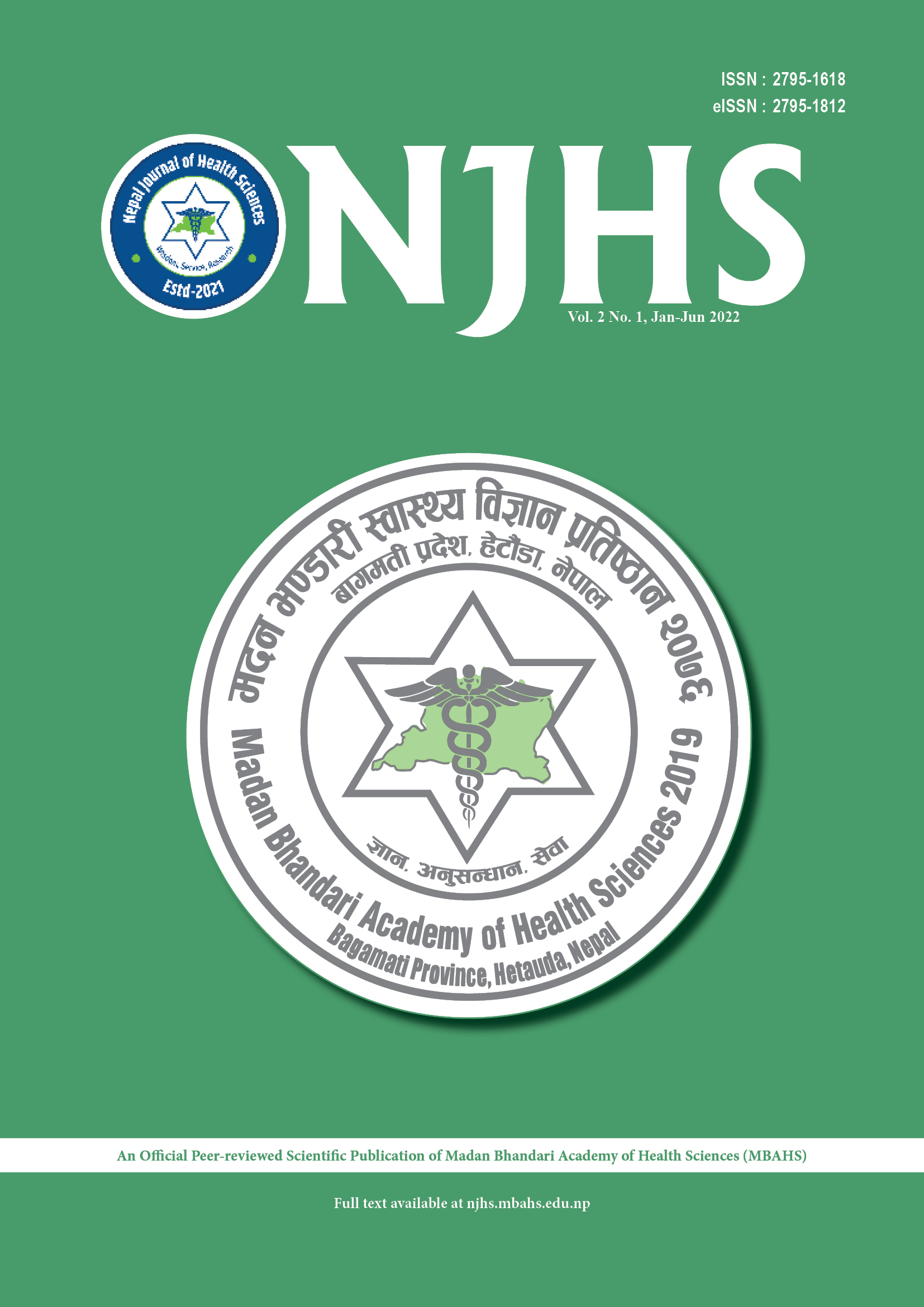Study of Glycated Haemoglobin and Lipid Profile in Type-2 Diabetes Mellitus
DOI:
https://doi.org/10.3126/njhs.v2i1.47157Keywords:
Diabetes Mellitus, Glycated Haemoglobin, Lipid ProfileAbstract
Introduction: Diabetes Mellitus is characterized by chronic hyperglycemia with disturbances of carbohydrate, fat, and protein metabolism resulting from defects in insulin secretion, insulin action, or both.
Objective: To compare the biochemical parameters which included glycated hemoglobin, serum total cholesterol, triglyceride, high-density lipoprotein cholesterol, and low-density lipoprotein cholesterol of people with diabetes mellitus and matched nondiabetic controls.
Methods: The cross-sectional hospital-based study was conducted among 60 diabetics and 30 nondiabetic patients. Fasting blood samples of 5 ml were collected from both the study sample and control sample. Biochemical parameters like glycated hemoglobin, serum total cholesterol, serum triglyceride, serum high-density lipoprotein cholesterol, and serum low-density lipoprotein cholesterol were analyzed with the help of a semi-automated analyzer, Erba Chem5, and Colorimeter-Systronic. Means of glycated hemoglobin, total cholesterol, triglyceride, high-density lipoprotein, and low-density lipoprotein were estimated
among the cases and controls. The student`s t-test was used to compare the mean values.
Results: A statistically significant difference was observed in mean glycated hemoglobin, total cholesterol, triglyceride, high density lipoprotein and low-density lipoprotein among the cases and controls (p-value<0.05).
Conclusions: This study concluded that there was a significant difference in mean glycated hemoglobin, total cholesterol, triglyceride, high-density cholesterol, and low-density cholesterol among the cases and controls. It is suggestive that lipid profile must be considered among diabetic patients which could be beneficial to prevent the risk of cardiovascular complications.





